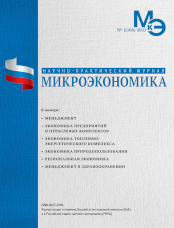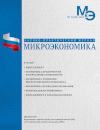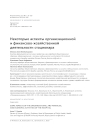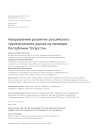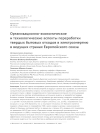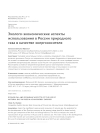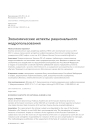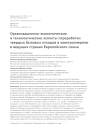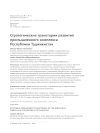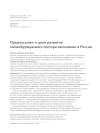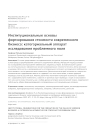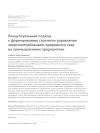Some aspects of the organizational and financial and economic activities of the hospital
DOI: 10.33917/mic-1.108.2023.93-100
The article analyzes the activities of a multidisciplinary hospital in the period before and after the introduction of anti-covid measures. An assessment of the effectiveness of the bed fund is given. Some indicators of financial and economic activity are presented: the main indicators of the balance structure, the formation of the main income, the analysis of the level of wages.
References:
1. Sergeeva N.M. Evaluation of the economic activity of a medical organization. Regional Bulletin. 2020;2 (41):95-97. (In Russ.).
2. Yashina N.I. Improving the financial management of public health institutions / N.I. Yashina, E.A. Khansuvarova, K.S. Yashin. Economic analysis: theory and practice. 2016;5 (452):85-98. (In Russ.).
3. Problems of organization of hospital care and approaches to its modernization / L.V. Rugol, I.M. Son, V.I. Starodubov, L.I. Menshikova. Social aspects of public health. 2020;66(1):1. Doi 10.21045 / 2071-5021-2020-66-1-1.
4. Chernysheva E.N. Analysis of the external environment of a medical organization on the example of the GAUZ «Bryansk Regional Hospital No. 1» / E.N. Chernysheva, A.V. Fomina, E.P. Makarova. Horizons of Economics. 2019;1 (47):45-54. (In Russ.).
5. Akhmeduev A.Sh. Problems of development and imperatives of healthcare reform in Russia and regions. National interests: priorities and security. 2019;15(8 (377)):1529-1546. (In Russ.).
6. Appendix to the order of the Ministry of Health and Social Development of the Russian Federation dated May 17, 2012 No. 555n «On approval of the nomenclature of the bed fund according to the profiles of medical care». URL: https://normativ.kontur.ru/document?moduleId=1&documentId=249617
7. Order of the Ministry of Health of the Russian Federation of March 19, 2020 N 198n «On the temporary procedure for organizing the work of medical organizations of the work of medical organizations in order to implement measures to prevent and reduce the risks of the spread of a new coronovirus infection COVID-19». URL: https://www.garant.ru/products/ipo/prime/doc/73669697/


